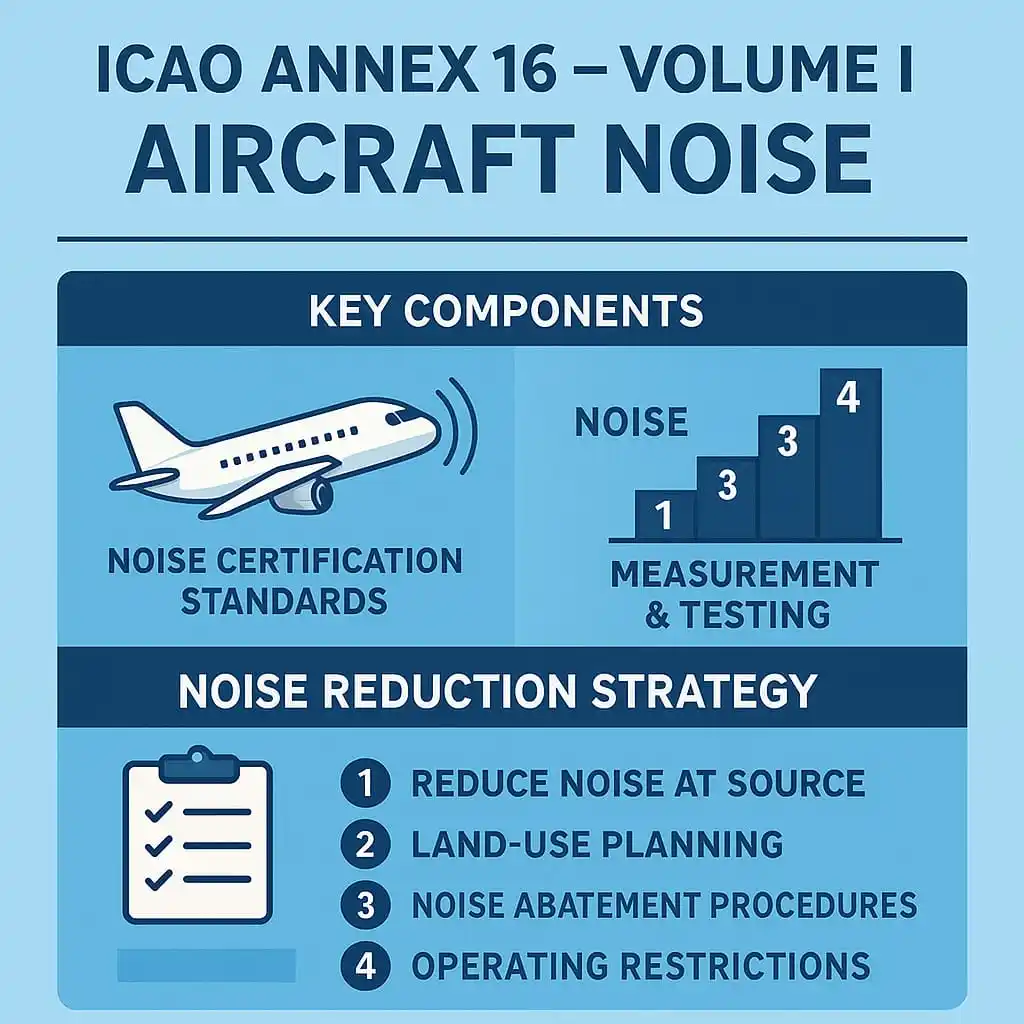
Aviator Fady
June 13, 2025 at 10:29 AM
✈️ ICAO Annex 16 – Volume I: Aircraft Noise
Title: Environmental Protection – Aircraft Noise
Objective:
To limit and reduce the impact of aircraft noise on communities around airports by setting international noise certification standards.
🔹 Key Components
1. Noise Certification Standards
Defines maximum allowable noise levels during specific flight phases:
▪️Takeoff
▪️Sideline (lateral during climb)
▪️Approach
These limits vary by:
▪️Aircraft type (jet, propeller)
▪️Maximum takeoff weight (MTOW)
▪️Engine configuration
2. Noise Categories ("Chapters")
✈️Aircraft are classified under different Chapters based on noise levels:
Chapter 2: Older, noisier aircraft (now largely phased out)
Chapter 3: Quieter standards introduced in the 1970s
Chapter 4: Stricter limits than Chapter 3
Chapter 14: Most stringent; applies to newer aircraft (effective 2017 for jets, 2020 for props)
3. Measurement & Testing
Noise is measured at:
▪️Lateral: 450 m from runway centerline
▪️Flyover: 6.5 km from brake release point
▪️Approach: 2 km before threshold
▶️Standard atmospheric and flight conditions are specified.
4. Applicability
▪️Applies to new aircraft designs and production.
▪️Older aircraft can be "retrofitted" to meet standards or face restrictions.
📉 Noise Reduction Strategy
Annex 16 Volume I supports ICAO’s Balanced Approach:
1. Reduce noise at source (quieter aircraft designs)
2. Land-use planning around airports
3. Noise abatement procedures (e.g., flight paths, altitude)
4. Operating restrictions (last resort)
🌐 Implementation by States
▪️ICAO member states adopt these standards through national regulations.
▪️States may restrict non-compliant aircraft (e.g., bans on Chapter 2 aircraft in many regions).
✅ Benefits
▪️Reduces community noise exposure.
▪️Encourages innovation in quieter aircraft.
▪️Harmonizes noise rules globally to support international aviation.
